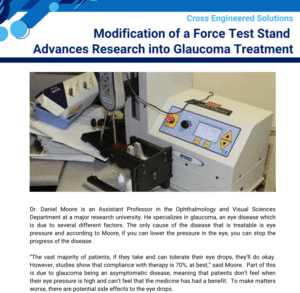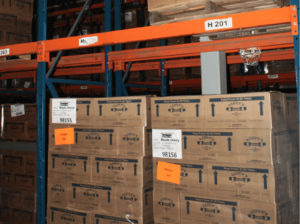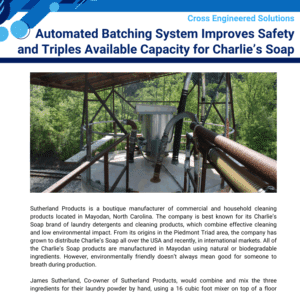Choosing the Right Automation Integrator - Questions to Ask
At Cross Company, we understand how important it is to have a good relationship with your automation integrator. Partnering with a trusted team that cares about your business is vital to the success of your operation. We’ve been offering solutions to industrial and commercial operations since the 1950’s, with successful projects that consistently turn into long-term business partnerships. When you work with us, we’re in it for the long haul. We know that our success depends on yours.
Which integrator you partner with is arguably the most defining choice of your automation journey. It dictates the timeline, deliverables, quality, and ultimately, the success—or failure—of your project. So before you sign the dotted line, here are Eight Signs to look for to feel completely confident in your integrator.
1. The Approach: They Discuss Your Process Before the Solution
A respectable integrator isn’t looking to push a product sale or position a specific brand just because they sell it. Their first priority should be process analysis and optimization. They should ask deep, challenging questions about why you do things the way you do and how automation fits into the larger workflow. Automation projects don’t always require robotic motion; sometimes a pneumatic system, an electromechanical solution, or an advanced vision system is the more appropriate choice. If the conversation starts with, “Which robot do you want?” you might be talking to a reseller, not a solution provider.

2. The Discovery: They Insist on Detailed On-Site (or Virtual) Visits
A dedicated integrator will want to see your operation firsthand. They need to understand more than just the machine’s task; they need to know the surrounding environment, potential safety risks, physical constraints, material flow, and staffing. Visiting your site allows them to identify hidden challenges like uneven floors, limited overhead space, or ambient temperatures that a simple phone call would never reveal. Thorough site discovery is non-negotiable.
3. The Integrity: They Tell You “No” or Pivot to a Better Solution
4. The Stability: They Have Proven Technical Expertise, Longevity and References

5. The Project Management: They Provide Transparent Timelines and Accountability
There should never be surprises when it comes to the project timeline or budget. A professional integrator delivers clear, milestone-based schedules, provides regular updates, and immediately flags any potential changes or delays before they become problems. This commitment to transparent communication and realistic expectations is the foundation of a good relationship.
6. The Proof: They Perform Rigorous Factory Acceptance Testing (FAT)
Before your automated system leaves the integrator’s facility, they must prove that it works exactly as specified under simulated production conditions. This is the Factory Acceptance Test (FAT). They should invite your team to witness this event, testing the machine against the defined specifications. If they skip the FAT or push to test only after delivery, it’s a major red flag.
7. The Partnership: They Provide Comprehensive Training and Post-Deployment Support
The work isn’t over when the system is installed. A true partner will have a clear answer to “what happens next?” They should provide specific, hands-on training for your staff, create detailed operating manuals and schematics, and offer defined lines of communication for after the project concludes. When, not if, you run into a problem, you need to know a skilled engineer is ready to support you quickly.

8. The Relationship: They Are Responsive and Enjoyable to Work With
Automation is stressful enough; the process shouldn’t be a struggle. Look for a partner who prioritizes a positive working relationship. This means they are easy to work with, they answer the phone or reply to emails promptly, and they consistently treat you like a valued partner. When your project wraps up, you should be left with a feeling that the team was not only technically smart and capable but also kind and collaborative.

Are You Ready To Find The Right Partner?
When you choose Cross Company, you are choosing a partner dedicated to these eight principles. We strive to make the integration process enjoyable, transparent, and successful. Your machine should be delivered working, your team should be trained, and your ongoing support should be effortless.




